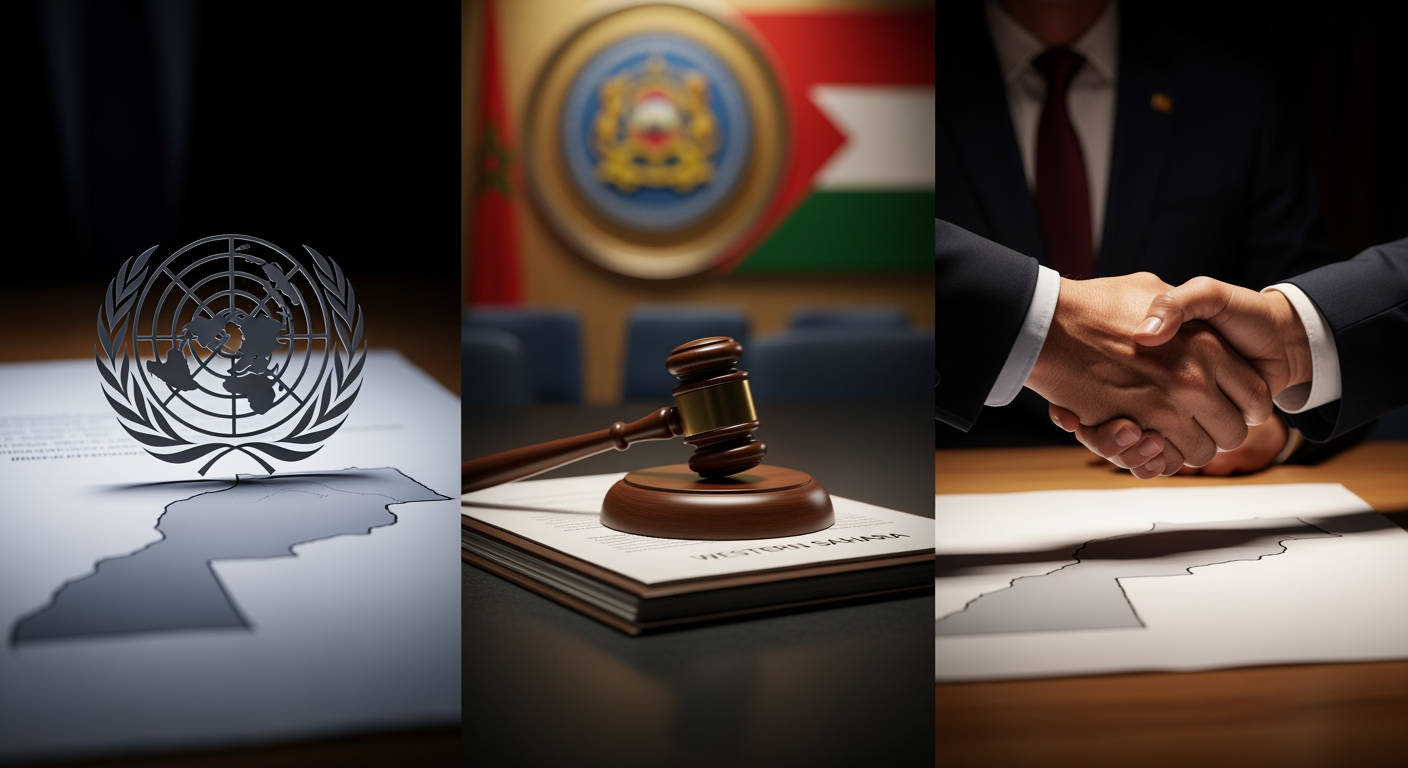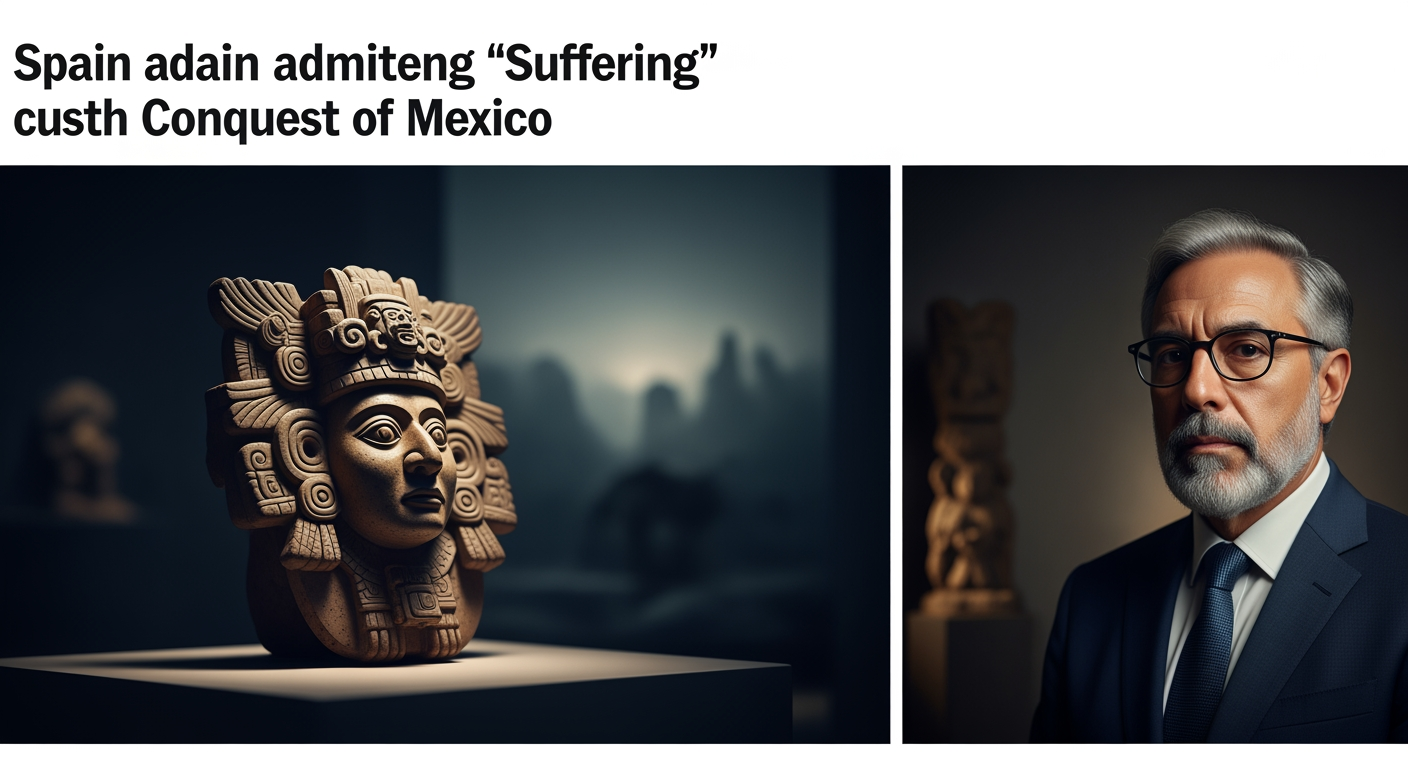Related Articles

APEC Leaders Chart Future Course with Landmark Declarations on AI and Demographics

Federal Judges Order Trump Administration to Fund Food Aid Amid Government Shutdown





Madrid, Spain – In a significant diplomatic development, Spain's Foreign Minister, José Manuel Albares, has for the first time officially acknowledged the "pain and injustice" inflicted upon the Indigenous peoples of Mexico during the Spanish conquest five centuries ago. This statement, delivered at the inauguration of an exhibition dedicated to Indigenous Mexican women, marks a notable shift in Spain's stance on a historical period that has long been a source of tension and a subject of calls for reconciliation from Mexico.
The long-awaited admission comes after years of persistent demands from Mexico for a formal apology regarding the abuses committed during the conquest and subsequent colonial rule. Mexican President Claudia Sheinbaum welcomed Albares' remarks as a "first step" in the right direction, underscoring the importance of such recognition for fostering mutual understanding and healing historical wounds.
Foreign Minister Albares, speaking in Madrid, emphasized that the relationship between Spain and Mexico is a "very human story, and like every human story, full of light and shadow." He openly stated, "There has been pain and injustice towards Indigenous peoples... it is only right to acknowledge that today. It is only right to lament it because that is also part of our shared history, and we cannot deny or forget it." This statement represents the clearest acknowledgment by a top Spanish official of the suffering endured by Indigenous communities during the colonial era.
The context for this acknowledgment was the exhibition, "Half the World: Women in Indigenous Mexico," which showcases 435 pieces of art spanning from 1400 BC to the 21st century. The event itself served as a bridge for cultural dialogue, highlighting the rich heritage that persisted despite the profound impact of colonization. President Sheinbaum reiterated Mexico's long-standing position that genuine reconciliation necessitates an acknowledgment of past wrongs, viewing Albares' statement as an important breakthrough.
The recent acknowledgment stands in stark contrast to Spain's previous responses to Mexico's calls for a formal apology. In 2019, former Mexican President Andrés Manuel López Obrador sent letters to King Felipe VI of Spain and Pope Francis, urging them to apologize for the "abuses" and human rights violations committed against Indigenous peoples during the conquest. López Obrador described the conquest as "tremendously violent, painful and unjustifiable," emphasizing the need for Spain to recognize its historical responsibility and offer "appropriate apologies or political reparations."
At that time, Spain's government firmly rejected the demand, asserting that "the arrival, 500 years ago, of Spaniards to present Mexican territory cannot be judged in the light of contemporary considerations." This rejection led to diplomatic friction between the two nations, with Spain's foreign ministry dismissing the idea of an apology and King Felipe VI making no public response to López Obrador's letter. The Spanish government argued that the two "brother nations" should read their shared past "without anger and with a constructive perspective." Mexico, however, viewed this as an "undiplomatic" reaction to a "very diplomatic letter."
The Spanish conquest of the Aztec Empire, primarily led by Hernán Cortés between 1519 and 1521, was a pivotal and devastating event in the history of the Americas. Cortés arrived in what is now Mexico with a small force, exploiting existing political divisions among Indigenous groups, such as the Tlaxcalans, who became key allies against the dominant Aztec Triple Alliance. The superior weaponry of the Spanish, including horses, swords, and guns, gave them a significant advantage.
However, the most catastrophic weapon introduced by the conquistadors was disease. Smallpox, to which Indigenous populations had no immunity, decimated their numbers, weakening their resistance. Estimates suggest that Mesoamerica, with an initial population of 15 million to 30 million people, saw its Indigenous inhabitants reduced to merely one to two million after a century of battles, massacres, and plagues.
Beyond the immediate violence and death, the conquest led to widespread exploitation and the systematic dismantling of Indigenous societies. The Spanish implemented the "encomienda system," a social caste system that effectively enslaved Indigenous people, forcing them into labor, particularly in mines. This system, often thinly disguised as a means of protection and Christian conversion, resulted in immense suffering and death from overwork and brutal conditions. Pre-Columbian cultures and religions were suppressed, with Spanish churches often built atop destroyed Indigenous temples. Friar Bartolomé de las Casas, a contemporary of the conquest, documented the "systematic torture, rape, and mutilation" exacted by the Spaniards on Indigenous people.
The recent shift in Spain's rhetoric signals a potential turning point in bilateral relations. While not a formal apology, Albares' acknowledgment provides a basis for dialogue and a re-evaluation of a complex shared history. The impact of the Spanish conquest on Mexico is multifaceted; the modern nation is a product of "mestizaje," a blend of Old and New Worlds, but also a history marked by violence and oppression.
The varied perspectives within Mexico on the conquest highlight the complexity of the issue; some view it as a catastrophic event, while others see it as a necessary, albeit brutal, foundation for the current nation. Similarly, opinions within Spain have been divided, with some rejecting any notion of collective guilt for historical events and others, particularly from left-wing political groups, supporting Mexico's calls for apologies.
This new acknowledgment from Spain's foreign minister opens the door for a more constructive engagement between the two nations. It represents an important gesture towards validating the historical grievances of Indigenous peoples and could pave the way for a deeper process of reconciliation and mutual respect, even as Mexico continues to pursue a more explicit apology.